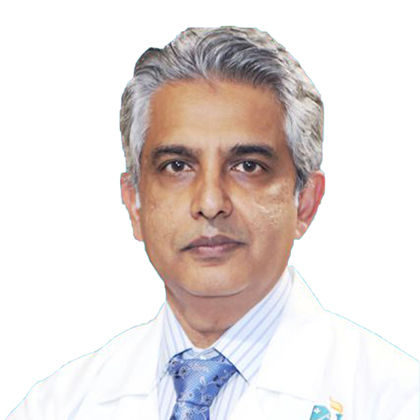Bariatric Surgery: Separating Life-Changing Facts from Dangerous Myths
Discover the truth about bariatric surgery—debunking myths and highlighting life-changing benefits for weight loss, metabolic health, and overall well-being.

.webp?tr=q-80,f-webp,w-350,dpr-2,c-at_max 700w)
Introduction
If you've been struggling with obesity and its related health issues, you may have considered bariatric surgery. But a quick online search can leave you feeling confused and overwhelmed, tangled in a web of success stories, scary warnings, and outright misinformation. Is it a miracle cure or a dangerous shortcut? The truth is, bariatric surgery is one of the most studied medical interventions today, and the evidence is clear: when performed on the right candidate, it is a profoundly effective tool for achieving significant, sustainable weight loss and improving overall health. This guide will cut through the noise, replacing common myths with evidence-based facts. We'll explore what the procedure truly entails, who it's for, and what the real journey looks like, empowering you with the knowledge you need to make an informed decision about your health.
What is Bariatric Surgery, Really?
Bariatric surgery, often called weight loss surgery, encompasses a range of procedures performed on the stomach and/or intestines to help a person lose weight. But to label it simply as "weight loss surgery" is to underestimate its profound impact. These procedures are fundamentally metabolic interventions, meaning they alter the body's chemistry and hormone levels to produce health benefits far beyond the number on the scale.
It's More Than Just Weight Loss
While significant weight reduction is a primary outcome, the goals of bariatric surgery are multifaceted. The most important benefits often include the remission or improvement of obesity-related conditions such as Type 2 diabetes, high blood pressure, sleep apnoea, and high cholesterol. For many, surgery isn't just about looking different; it's about living a longer, healthier, and more active life free from the constraints of chronic disease.
Common Types of Bariatric Procedures
There are several types of bariatric surgeries, but they generally work in one of two ways: by restricting the amount of food the stomach can hold (restrictive) or by affecting how nutrients are absorbed (malabsorptive). Many procedures combine both mechanisms. The most common include:
- Sleeve Gastrectomy: A large portion of the stomach is removed, creating a smaller, banana-shaped "sleeve." This is primarily a restrictive procedure.
- Gastric Bypass (Roux-en-Y): The stomach is divided into a small pouch and connected directly to the small intestine, bypassing a large part of the stomach and the first section of the intestine. This combines restriction and malabsorption.
- Adjustable Gastric Band: A band is placed around the upper part of the stomach to create a small pouch, which can be adjusted by injecting or removing saline through a port under the skin. This is a purely restrictive procedure.
The choice of procedure depends on your specific health profile, BMI, and medical history, and is made in close consultation with your bariatric surgeon.
Consult a Bariatric Surgeon for the best advice
Debunking the Top 10 Myths About Bariatric Surgery
Misinformation can be a significant barrier to seeking treatment. Let's dismantle the most persistent myths one by one.
Myth 1: "It's the Easy Way Out"
This is perhaps the most common and damaging myth. Bariatric surgery is not a passive procedure. It is a powerful tool that requires immense and lifelong commitment from the patient. The surgery itself is just the beginning. Success depends entirely on adopting new dietary habits, consistent exercise, and attending follow-up appointments. Patients often describe it as the "hardest easy way out," as it demands rigorous discipline every single day.
Myth 2: "The Risks Are Too High"
While all surgeries carry risk, modern bariatric surgery is remarkably safe. Advancements in laparoscopic (minimally invasive) techniques have significantly reduced complication rates. According to the American Society for Metabolic and Bariatric Surgery (ASMBS), the risk of a serious complication is low (around 4%), and the risk of mortality is comparable to or even lower than that of common procedures like gallbladder removal. It's crucial to weigh these risks against the well-documented dangers of living with severe obesity.
Myth 3: "You'll Be Miserable and Malnourished Forever"
With proper guidance from a multidisciplinary team, malnutrition is highly preventable. Patients are prescribed specific vitamins and mineral supplements for life to avoid deficiencies. As for being miserable, the opposite is often true. While the initial dietary stages are strict, patients gradually reintroduce a variety of foods. Most find that their relationship with food improves, and the joy of improved health, mobility, and confidence far outweighs dietary restrictions.
Myth 4: "It's Only for the Super Obese"
Eligibility is based on body mass index (BMI) and the presence of co-morbidities. Generally, surgery is considered for those with a BMI of 40 or higher, or a BMI of 35 or higher with at least one serious obesity-related condition, like diabetes. However, recent guidelines also support bariatric surgery for type 2 diabetes in patients with a BMI as low as 30. If your condition does not improve after trying conventional methods, consult a doctor online with Apollo24|7 to discuss your eligibility.
Myth 5: "The Weight Always Comes Back"
Regaining some weight is possible, especially if long-term lifestyle changes are not maintained. However, stating that weight "always" comes back is false. Studies show that most patients maintain successful weight loss (defined as losing more than 50% of excess weight) over the long term. For example, a 10-year follow-up study on gastric bypass patients showed an average maintenance of 60-70% excess weight loss. The key to maintaining weight after bariatric surgery is adherence to the postoperative plan.
Myth 6: "It's a Cosmetic Procedure"
This is fundamentally incorrect. Bariatric surgery is a medical treatment for a complex disease—obesity. Its primary purpose is to reduce the health risks and mortality associated with severe obesity. While improved appearance is a welcome side effect, insurance companies and medical boards approve it based on medical necessity, not cosmetic desire.
Myth 7: "You Can Never Eat Normally Again"
"Normal" is redefined. Patients cannot return to old habits of large portions, sugary drinks, and high-calorie snacks. However, after the initial recovery phase, they can enjoy a balanced, nutritious diet that includes proteins, vegetables, and even small portions of other foods. The surgery helps reset hunger cues and portion control, allowing for a new, healthier "normal."
Myth 8: "Pregnancy is Impossible After Surgery"
On the contrary, weight loss can significantly improve fertility in both men and women. However, it is recommended that women wait 12-18 months after surgery before becoming pregnant. This allows for weight stabilisation and ensures nutritional status is optimal for a healthy pregnancy. With proper planning and monitoring by an OB-GYN and your bariatric team, pregnancy after surgery is not only possible but often safer than before.
Myth 9: "It's Unaffordable for Most People"
While the upfront cost can be significant, many insurance plans now cover bariatric surgery, recognising it as a cost-effective treatment for chronic disease. Furthermore, when considering the cost of bariatric surgery, one must factor in the long-term savings from reduced medication costs, fewer doctor visits, and a lower risk of hospitalisation for obesity-related illnesses. Many hospitals also offer financing options.
Myth 10: "It's a Quick Fix That Doesn't Address the Root Cause"
Bariatric surgery is the opposite of a quick fix; it's a long-term solution that helps address the root causes. Obesity is a multifactorial disease involving genetics, hormones, metabolism, and psychology. Surgery directly impacts hormones like ghrelin (the hunger hormone) and GLP-1, which regulate appetite and metabolism. It is a biological intervention that, combined with behavioral therapy, helps tackle the physiological drivers of obesity.
The Undeniable Facts: What Science Tells Us
Beyond myth-busting, it's important to focus on the established, evidence-based truths about metabolic and bariatric surgery.
Fact: It's a Powerful Tool for Metabolic Health
The data is overwhelming. Bariatric surgery leads to the remission of Type 2 diabetes in up to 80% of patients. It dramatically improves or resolves sleep apnoea, hypertension, and high cholesterol in a majority of cases. This leads to a significant reduction in long-term mortality risk.
Fact: Success Demands a Lifelong Commitment
The most successful patients are those who actively engage with their healthcare team for years after surgery. This includes regular check-ups, monitoring for nutritional deficiencies (Apollo24|7 offers convenient home collection for tests like vitamin D or HbA1c), and seeking support from dietitians and support groups. The surgery is a launchpad, not the finish line.
Fact: Comprehensive Care is Non-Negotiable
Undergoing surgery at a center that offers a multidisciplinary approach—including a surgeon, dietitian, psychologist, and exercise physiologist—is critical. This team provides the education and support needed to navigate the profound physical and emotional changes of the journey, maximising the long-term success rates of bariatric surgery.
Conclusion
Navigating the world of bariatric surgery requires separating empowering facts from discouraging fiction. As we've explored, the procedure is a scientifically validated, safe, and effective treatment for severe obesity and its related metabolic diseases. It is far from a cosmetic quick fix; it is a committed partnership between a patient and a medical team aimed at reclaiming health and vitality. The journey demands courage, discipline, and a willingness to embrace change, but the rewards—improved quality of life, remission of chronic conditions, and a renewed sense of well-being—are immeasurable. If you are considering this path, let evidence, not fear, guide your decision. Arm yourself with knowledge from credible sources and take the courageous step of consulting a qualified healthcare professional to see if you are a candidate. Your journey to a healthier life deserves to begin with the truth.
Consult a Bariatric Surgeon for the best advice
Consult a Bariatric Surgeon for the best advice

Dr. Anand Ravi
General Physician
2 Years • MBBS
Bengaluru
PRESTIGE SHANTHINIKETAN - SOCIETY CLINIC, Bengaluru

Dr. Sunil Kaul
General Surgeon
30 Years • MBBS, MS, FICS, FIMSA, FMAS
Delhi
Apollo Hospitals Indraprastha, Delhi
(25+ Patients)

Dr. Sreedhara V.
Surgical Gastroenterologist
23 Years • MBBS, DNB, FSGE
Bengaluru
Apollo Hospitals Bannerghatta Road, Bengaluru

Dr. Neha Shah
Bariatrician
23 Years • MBBS, MS, FIAGES, FAIS, FMAS, FMIS, FALS
Chennai
The Good Weight, Chennai

Dr. Aashish R Shah
Minimal Access/Surgical Gastroenterology
27 Years • MS(General Surgery), DNB, FRCS
Bengaluru
Apollo Hospitals Sheshadripuram, Bengaluru
Consult a Bariatric Surgeon for the best advice

Dr. Anand Ravi
General Physician
2 Years • MBBS
Bengaluru
PRESTIGE SHANTHINIKETAN - SOCIETY CLINIC, Bengaluru

Dr. Sunil Kaul
General Surgeon
30 Years • MBBS, MS, FICS, FIMSA, FMAS
Delhi
Apollo Hospitals Indraprastha, Delhi
(25+ Patients)

Dr. Sreedhara V.
Surgical Gastroenterologist
23 Years • MBBS, DNB, FSGE
Bengaluru
Apollo Hospitals Bannerghatta Road, Bengaluru

Dr. Neha Shah
Bariatrician
23 Years • MBBS, MS, FIAGES, FAIS, FMAS, FMIS, FALS
Chennai
The Good Weight, Chennai

Dr. Aashish R Shah
Minimal Access/Surgical Gastroenterology
27 Years • MS(General Surgery), DNB, FRCS
Bengaluru
Apollo Hospitals Sheshadripuram, Bengaluru
More articles from Weight Loss
Frequently Asked Questions
What is the typical recovery time after bariatric surgery?
Most patients stay in the hospital for 1-2 days and can return to non-strenuous work within 2-4 weeks. Full recovery, including the ability to resume all physical activities, usually takes 6-8 weeks. Recovery varies depending on the type of procedure and the individual.
Will I have loose skin after significant weight loss?
Some degree of loose skin is very common after massive weight loss. The amount depends on factors like age, genetics, and the speed of weight loss. While exercise can help tone underlying muscle, it cannot tighten skin. Procedures like body contouring surgery are an option for some patients after their weight has stabilised for 12-18 months.
How does bariatric surgery affect mental health?
The relationship is complex. While improved health and self-esteem often lead to reduced anxiety and depression, the journey requires significant psychological adjustment. Some patients may experience new emotional challenges. Pre- and post-surgery psychological support is a critical component of comprehensive care to ensure a positive life after gastric sleeve surgery or other procedures.
Can I ever drink alcohol again after bariatric surgery?
Alcohol absorption changes after surgery, particularly with gastric bypass. Patients can become intoxicated much faster and with smaller amounts. Many programs recommend avoiding alcohol entirely, especially in the first year. If consumed later, it must be done with extreme caution and moderation, as it also provides empty calories that can hinder weight loss.
What happens if I don't follow the dietary guidelines after surgery?
Not following the guidelines can lead to serious complications, including nutrient deficiencies, dehydration, 'dumping syndrome' (nausea, cramping, and diarrhoea), weight regain, and even structural issues like stretching the new stomach pouch or blockages. Adherence is crucial for both short-term safety and long-term success.




